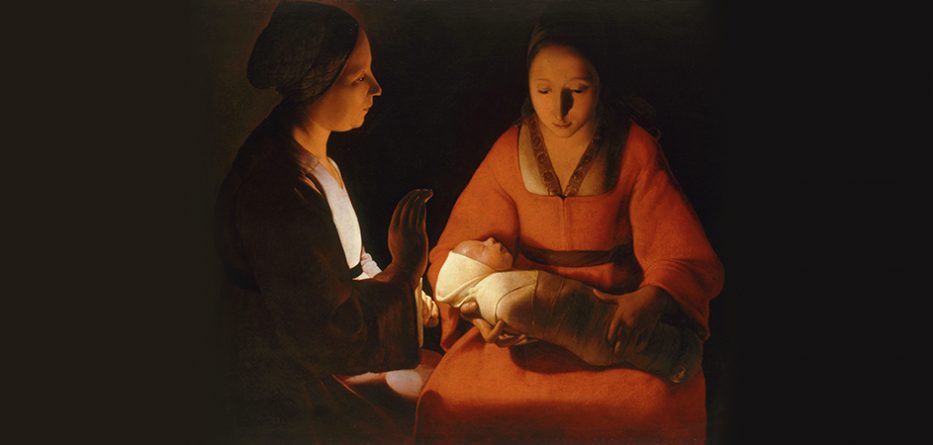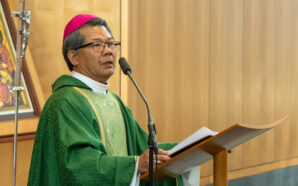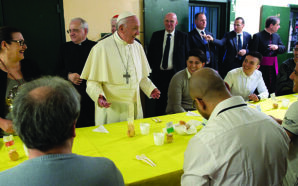The great Jesuit theologian Karl Rahner SJ once recounted a conversation with a colleague whom he identified as ‘a modern Protestant theologian’. He says:
At one point I had to say to him, ‘Yes, you see, you’re actually only dealing with Jesus when you throw your arms around him and realise right down to the bottom of your being that this is something you can still do today.’ And the theologian replied, ‘Yes, you’re right, of course—if you don’t mean it too pietistically.’
Rahner responded:
I think one can and must love Jesus, in all immediacy and concreteness, with a love that transcends space and time, in virtue of the nature of love in general and by the power of the Holy Spirit of God.
As we pray the Creed and affirm that God ‘became man’, we are actually saying that this loving encounter with Jesus is possible to us today. As Rahner affirmed: ‘On condition that we want to love him, that we have the courage to throw our arms around him.’
The Jesus we ‘throw our arms around’ did not come flinging lightning bolts from a mountaintop, or playing politics in Rome. He came to live in a typical Middle Eastern village called Nazareth that was home to a couple of hundred ‘country’ people. He did not decide to brandish his power, but to spend most of his time with the powerless and disenfranchised.
And what is more, he was born, like all of us, to a mother, Mary of Nazareth. A human woman is the mother of God, and God is the son of a human mother!
In the Incarnation we are given a very human image of a poor woman and her husband with a newly born child. No wonder the Madonna is by far the most painted image in Western civilisation. It heals all mothers and all children of mothers, if we can only look deeply and softly.
That healing power of God becoming flesh extends even further and ever outwards. If God became flesh in Jesus, then it is in the world, the physical, the animal, in the natural elements, in human sexuality that God must be found. This is how Christianity was supposed to change everything. Most of us just kept looking up, when God in Jesus had, in fact, come down … for us to ‘throw our arms around’.
Because ‘he became man’ and carried his obedience and love to the point of accepting destruction (not just the torture of the cross but death, an ending, a total failure), because of this, he has been raised up beyond death to love, which is the life of God.
The risen Jesus did not just enter paradise. He is paradise. Heaven is not a place beyond the sky. It is the risen Christ, the Body of Christ living by love, the beginning of risen humankind, the ultimate future of humanity.
In reciting the Creed we too take this great risk of faith: that is, we ‘throw our arms around Jesus’, the ‘Word made flesh’. We pledge to seek him in the real material and spiritual worlds that we live in—because God in Christ is now forever our brother and close friend. We are all now ‘insiders’ with him.
This article is part of a series of reflections entitled ‘I Believe…Help My Unbelief’: Meditations on the Creed by Br Mark O’Connor FMS.
Br Mark O’Connor FMS is the Vicar for Communications in the Diocese of Parramatta.








